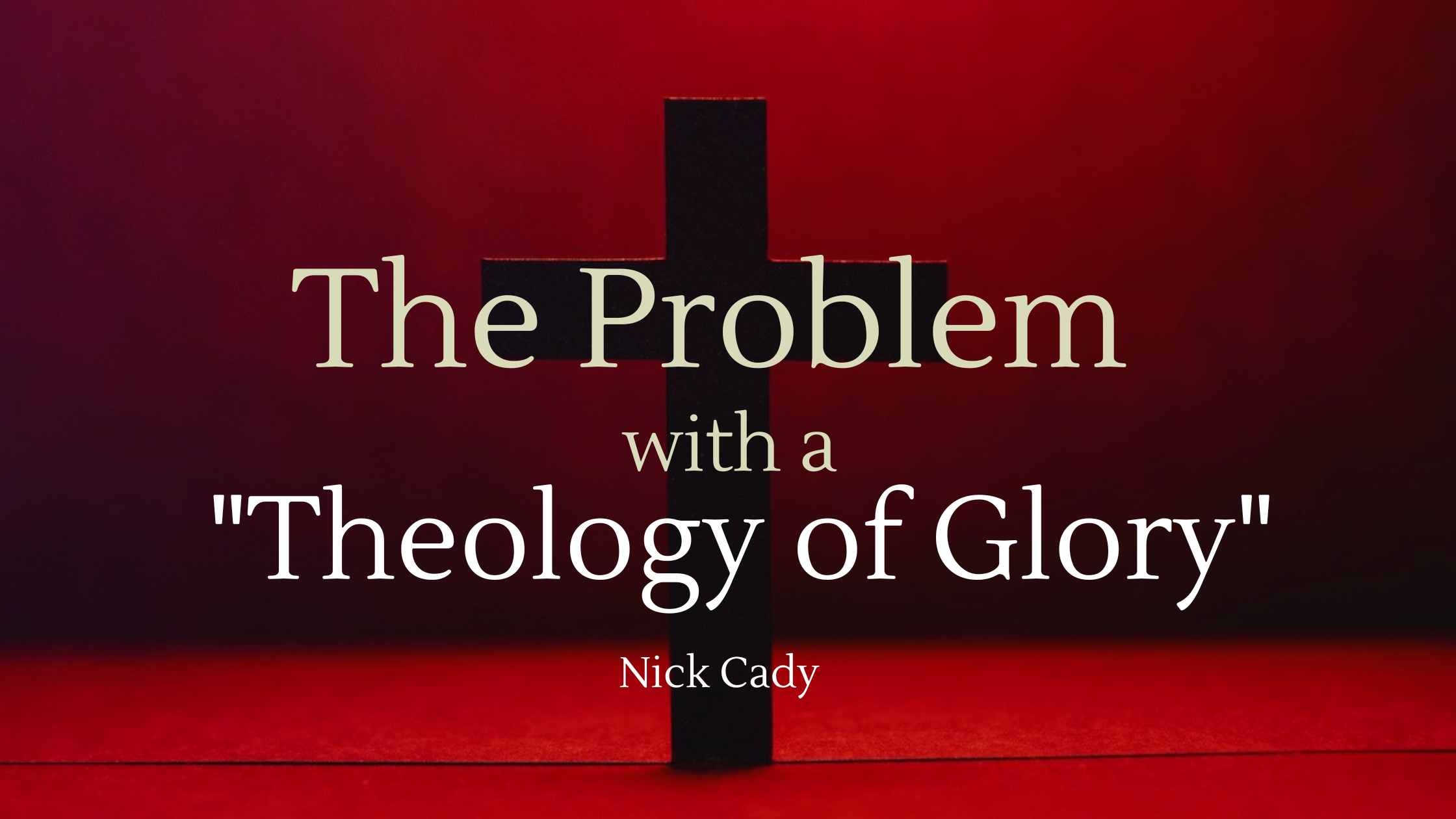
Do you have a theology of glory, or do you follow the theology of the cross? Here’s an easy test: honestly ask yourself the question, “Do you seek God primarily because you consider Him useful, or because you find Him beautiful?”
There are many things about God that are useful; He is omnipotent and He is able to answer prayers, do the miraculous, help in time of need. But do you seek Him primarily for what He can do for you, or do you seek Him primarily because of who He is?
Is Jesus Merely a Self-Help Guru?
A theology of glory, as Martin Luther explained, most famously in his Heidelberg Disputation (1518), views God primarily as useful to you. A theology of glory, as Luther used the term, is really a theology of man’s glory. Rather than focusing on and seeking the glory of God, a theology of glory is focused on seeking your own personal glory — with Jesus as your self-help guru or the one who gives you a “boost” or a “shot in the arm” to help you achieve your goals and reach your potential.
The theology of the cross, on the other hand, states that it’s ultimately by looking at the cross that we learn who God is and who we are (cf. Hebrews 1:1-2). For example, the cross of Christ shows us that, as human beings, we are completely unable to save ourselves — this is why Jesus’ death on the cross was necessary. Furthermore, it’s through the cross that we come to known the depth of God’s love for us.
Savior, not Side-Kick
The theology of the cross understands that Jesus is your savior, not your side-kick or personal assistant. The cross causes us, as Paul the Apostle puts it in Philippians 3:3, to “glory in Christ Jesus and put no confidence in the flesh,” i.e., trusting in our own abilities or goodness to justify ourselves or earn God’s blessings.
The Message of the Cross Transforms Our Goals
As we come to see the beauty and depth of God’s love, displayed for us in the most ultimate way on the cross, it compels us to respond by surrendering our lives to Him (2 Corinthians 5:14-15). This transforms us from being people who seek to use or leverage God for our own power or glory to those who instead take up our crosses and die to ourselves, that Christ might live in us (Galatians 2:20). We do this, remembering that Jesus surrendered Himself to the will of the Father, even unto death on a cross, after which God highly exalted Him (Philippians 2:8-9). Therefore, we also know that if we, rather than seeking to exalt ourselves, seek to exalt Jesus and surrender our lives to Him, God will exalt us in the end as well (1 Peter 5:6).
What about when following God isn’t “useful”?
Do you seek God primarily because you consider Him useful, or because you find Him beautiful? How you answer that question will have big implications for how you view God, and how your faith weathers the storms and trials of this life. For example, if you seek the Lord primarily because you find Him useful, what will happen if there’s a time when you feel that following Jesus isn’t useful? What if God doesn’t answer your prayer in the way, or within the timeframe, you expected, or hoped?
If, however, by looking at the cross, you become acutely aware of the beauty of God’s heart and the depth of His love, you will have a faith that’s able to weather any storm.
The Cross is Where the Beauty of God’s Love is Most Powerfully Displayed
By looking at the cross, we are made aware of who God is and who we are. May we look to the cross, and rather than putting confidence in our flesh, may we glory in Christ Jesus. As we look to the cross and see the beauty and love of God on display, may it compel our hearts to live not for our own glory, but for Him who died and was raised for us.







